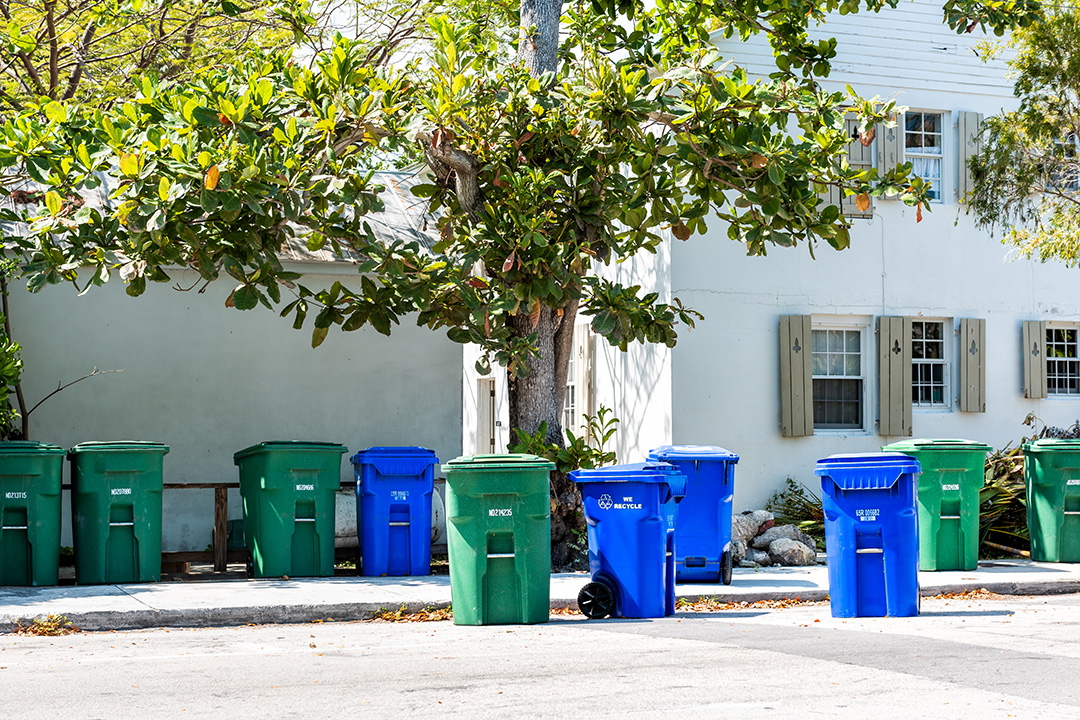
In addition to the draft strategy, the EPA plans to release a list of national recycling goals this fall. | Kristi Blokhin/Shutterstock
A draft of the U.S. EPA’s National Recycling Strategy was published last week. The plan aims to foster a “stronger, more resilient and cost-effective” recycling system.
The strategy, published Oct. 5, was developed with input from numerous recycling stakeholder groups. The document has three key guiding objectives: to reduce contamination, increase processing efficiency and improve domestic markets.
The strategy document defines “recycling” as “the series of activities by which discarded or used materials are collected, sorted based on physical/mechanical characteristics, processed and/or converted into feedstock and used in the manufacture of new products.”
The draft is part of a process that kicked off with the 2018 America Recycles Day Summit, which was held largely in response to major industry challenges from the loss of the Chinese market. Stakeholders developed a framework document identifying key problems and ways to advance the U.S. recycling system, and the new strategy builds off that work, according to the EPA.
In addition to the draft strategy, the EPA plans to release a list of national recycling goals this fall. The strategy will help the U.S. hit those as-yet unannounced goals.
The EPA is accepting comments on the draft strategy until Dec. 4. In particular, officials want to know which of the proposed actions would have the greatest positive impact at the local, regional and national levels; what key steps and milestones are needed to implement the strategy’s actions; which factors potential partner organizations would consider when deciding whether to lead an action in support of the strategy; what actions federal agencies should take; and any further actions that should be included in the strategy.
The strategy was crafted with input from federal, state and local governments, as well as the more than 260 America Recycles Day pledge signatories, a group that includes virtually every prominent recycling industry association and numerous paper, plastics, electronics and other material recycling firms.
Contamination reduction
The strategy identifies nine actions to enhance consumer outreach and better coordinate information on recycling programs between different government offices.
These actions include developing additional messaging and public-facing educational materials; identifying effective methods of outreach and incorporating those into a national outreach program; creating more consistent recycling labels for products and receptacles; and more.
Improve processing efficiency
Acknowledging that U.S. processing infrastructure “has not kept pace with the rapidly changing recyclables stream,” the strategy suggests five key action areas to boost U.S. processing capabilities.
These include creating a national map of current recycling infrastructure spanning collection centers, MRFs, reclaimers, paper mills, glass processors and more; identifying key needs for domestic infrastructure; better publicizing public and private funding opportunities and incentive programs to enhance infrastructure; continuing to fund technology research; promoting design-for-recyclability to manufacturers; and developing a national system of recycling definitions, measuring standards, targets and performance indicators.
Building up markets
The strategy references ongoing shifts and declines in overseas markets for key curbside recyclables, noting that this trend “has impacted the economics of recycling both within the United States and worldwide.”
To help U.S. market development, the strategy recommends increasing demand through various methods, focusing specifically on “materials with less mature markets”; conducting market development workshops; generating more data about the amount of recycled material generated and the needs of manufacturers; addressing barriers to greater recycled content use; improving communication to the public about the value of buying products with recycled content; and more.
More stories about regulation/oversight
- Proposed EPR changes in Canada could inform US plans
- Oregon bill could expedite a MRF’s troubled permit process
- California extends compostable labeling law